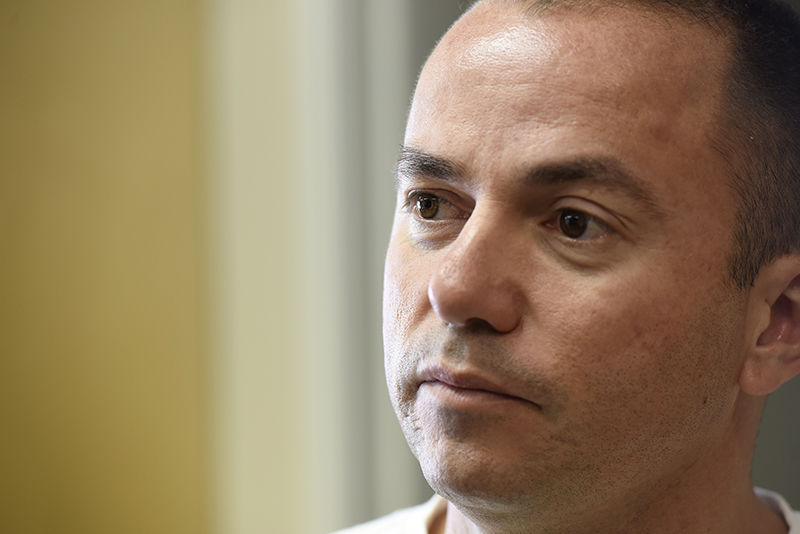Bobby Garcia says he’s been through the “whole gamut” in California’s penal system — from juvenile hall to maximum security prisons like Corcoran Security Housing Unit, Kern Valley, Mule Creek to Ironwood, where he paroled from in 2014.
“They were just moving us around every two years in the ‘90s and 2000s because they were opening up so many new facilities,” he explains. “They were mostly all crowded. It looked like a big can of sardines, putting us in three-high bunk beds in gyms and even classrooms. The system was busting at the seams.
“There was a lot of, like, frustrations, a lot of emotions raging, a lot of people on waiting lists to go to school and jobs. People were catching staph infections and Valley Fever. You couldn’t get away from others. You could never feel like you were in a human environment.”
Garcia was tried as an adult at 16 and sentenced to 25 years to life for being in a fight where a codefendant stabbed and killed a rival gang member in Burbank. After serving 21 years, he got a parole hearing under a new state law, SB 260, and was released at age 38.
“I was actually fortunate that I was paroled on my first try,” he notes. “What happened was 260 had just passed. And I went in with a lot of recommendations, like, from staff. And I had earned two college associate degrees from taking correspondence courses paid for by my wife.
“So I had all that good stuff, and they used the language that was in 260 to grant me parole. They said that I was susceptible to peer pressure with all the hallmarks of youth. So it worked in my favor.”
For the last year, the now 40-year-old man who grew up in Hollywood has been part of the Jesuit Restorative Justice Initiative team, running the Culver City office plus sharing his personal story with advocates, legislators and others. How he grew up angry in an alcoholic home with a missing dad.
“So I channeled all that anger into violence,” he says. “And the only violence that meant something was being a gang member. So I was just acting out my anger: delinquency, truancy, getting bad grades, smoking pot and all that stuff. I just didn’t know how to cope with what was going on around me.”
Garcia says the “draconian days” in California prisons seem to have passed. But the institutions still don’t resemble “Disneyland” and long waiting lists for self-help programs and education classes — heavy factors for being granted parole — remain.
When asked why California and the U.S. continue to lock up so many of its citizens — more than any other nation or state — he has a ready reply: drugs!
“What’s happening now is we’re still dealing with substance abuse problems,” he points out. “Instead of treating the problem, we’re locking them up. Because we are still refusing to see this as a disease and more as a choice. You know, ‘They made their choice, so this is the consequence.’ And because of that, they just incarcerate everybody.
“And then the fear tactics of get tough on crime,” adds Garcia. “People from a different stratosphere in the economic system don’t want to be victimized, so they pass all these harsh laws. It kind of shows that we’re desensitized where we want quick solutions.”
Editor's note: This piece is part of Angelus News' "Prison on Parole" edition. Read more about the issue from our editor-in-chief, JD Long-Garcia.

